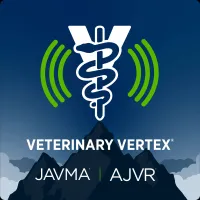View Transcript
Episode Description
The battle against Rhodococcus equi, a devastating bacterial pneumonia in foals, continues to challenge equine veterinarians more than a century after its discovery. This fascinating conversation with Drs. Noah Cohen and Devynn Volding illuminates a previously unexplored aspect of a common preventive measure: the safety of hyperimmune plasma transfusions from an electrolyte perspective.
When veterinarians transfuse 1-2 liters of hyperimmune plasma into newborn foals, they're expanding the animal's blood volume by a staggering 20-40%. This significant intervention naturally raises questions about potential electrolyte imbalances, especially since foals are particularly susceptible to such disturbances. Through meticulous research involving sample collection from foals before and after transfusion, Drs. Cohen and Volding discovered reassuring news - the procedure causes minimal changes in electrolyte and protein concentrations, with even sodium (the electrolyte of greatest concern) showing only statistically but not clinically significant increases.
The researchers also tackle broader questions about Rhodococcus equi management, including the challenges of vaccine development, diagnostic limitations, and emerging antimicrobial resistance. Dr. Cohen provides valuable perspective on the realistic expectations for vaccine efficacy, noting that even partial protection (like that offered by human influenza vaccines) would represent significant progress. Their work exemplifies the critical distinction between statistical significance and clinical importance - a reminder that p-values don't always translate to meaningful differences in patient care.
Have you encountered Rhodococcus equi in your practice? This episode provides practical reassurance that hyperimmune plasma transfusions appear safe from an electrolyte perspective while offering insights into the future directions of research against this persistent equine pathogen. Subscribe to Veterinary Vertex for more clinically relevant conversations at the intersection of research and practice.
Open access JAVMA article: https://doi.org/10.2460/javma.25.02.0115
INTERESTED IN SUBMITTING YOUR MANUSCRIPT TO JAVMA ® OR AJVR ® ?
JAVMA ® : https://avma.org/JAVMAAuthors
AJVR ® : https://avma.org/AJVRAuthors
FOLLOW US:
JAVMA ® :
Facebook: Journal of the American Veterinary Medical Association - JAVMA | Facebook
Instagram: JAVMA (@avma_javma) • Instagram photos and videos
Twitter: JAVMA (@AVMAJAVMA) / Twitter
AJVR ® :
Facebook: American Journal of Veterinary Research - AJVR | Facebook
Instagram: AJVR (@ajvroa) • Instagram photos and videos
Twitter: AJVR (@AJVROA) / Twitter
JAVMA ® and AJVR ® LinkedIn: https://linkedin.com/company/avma-journals
